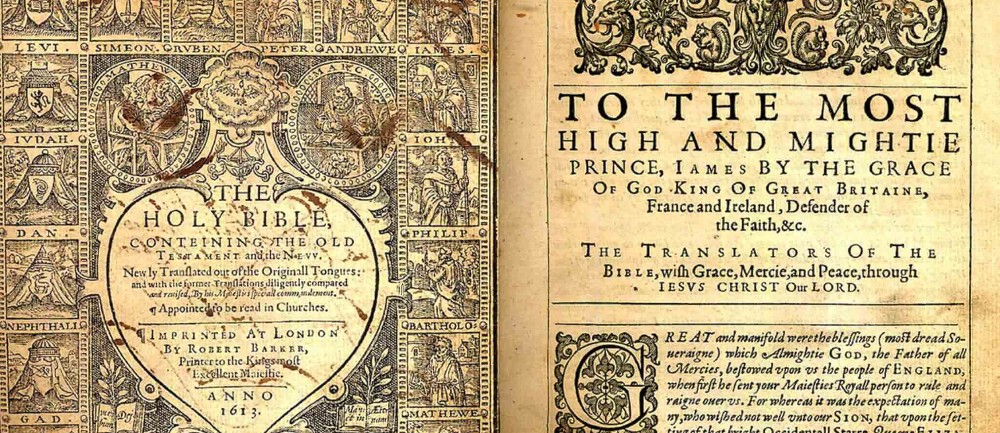
King James English Is . . . Informal?
I’ve always been fascinated by the fact that when the Bible is translated into a language that distinguishes between a formal and informal “you,” translators have almost always chosen the informal option for God.
So, for example, biblical prayers speak to God as tu or tú in French, Italian, or Spanish (as opposed to vous, lei, or usted, respectively). It’s the familiar “you,” the one you might use with a friend, a family member, or a child.
I would have expected the opposite — that with all the dignity and formality so often associated with God, and with his sovereignty and majesty always there to overwhelm us if we think about them enough, translators might defer to the exalted language befitting a king. After all, we do call him “Lord.” Shouldn’t our language reflect a little respect?
We see this tension even in scripture. I often juxtapose two pictures of John the disciple — the one where he is leaning against Jesus’ chest at the Last Supper and listening to his whispers, and the other when John has fallen at the feet of the risen Jesus in Revelation.
Both are true. The Father, Son, and Spirit are both intimately familiar and staggeringly majestic. We can crawl into God’s lap or fall on our faces in awe.
Even so, translators have almost always chosen the most intimate term in languages that require a choice.
Except the King James, I’ve thought. Shakespearean-era English, with all its ‘thees’ and ‘thous’, always brings us back to that dignified stance before the Almighty. They sound so respectful, so formal, so . . . holy.
Imagine my shock, then, when I recently learned how those words were really used.
Our Sovereign Friend
Last month I attended a week-long course at the University of Pennsylvania on the history of how the Bible has been read throughout history, and this question of the formal “you” came up near the end.
Modern English makes no distinction, of course; “you” means “you” whether you are talking to a child or a president. But when the Authorized Version of the Bible was finished in 1611 — what we know of as the “King James Version,” though he didn’t have a whole lot to do with it — English did distinguish between formal and informal second-person addresses.
And, to my shock, the formal version of “you” in the 1600s was . . . “you.” “Thee” and “thou” were the informal terms — the words you might use with a friend, family member, or child. You could never politely say, “Thou art my king,” for example, because kings were not “thou.” They were “you.”
In fact, if you really wanted to insult someone considered superior in social status, you might "thou" him: “You may think you’re high and mighty, but thou art really beneath me, thou insolent fool.” It was a major old-school insult.
(This was actually the tactic of the Sir Walter Raleigh’s prosecutor, who kept calling him things like “thou viper,” “thou traitor,” and “thou odious fellow” at his trial and refused to respect him with a “you.”)
"Thou" was only offensive when intentionally used out of place. On all other occasions, in ordinary usage, it was simply a way of saying “you” with a very intimate, familiar tone.
So the King James Version, like most other translations, defaults to intimate addresses in prayers and conversations with Jesus. We have come to associate its language with extreme formality, mainly because it is so archaic and has been used for so long in high church settings. But that’s not how it was read way back when.
Lover or King?
This brings us to a pretty significant question about our relationship with God. Is he our Lover or our King? He’s both, of course; this is not meant to be a trick question. (Again, remember John at the Last Supper and John overwhelmed by glory. Both are entirely appropriate.)
But when you are pushed to default to one or the other — to pick which side of the relationship comes first — is God a dignitary or an intimate? A sovereign or a friend? The exalted King or someone who is right there with you?
You’ve probably picked up on my leanings by now. As much as I love the face-down moments of awe, sometimes I just need to talk. I need to sit next to him, laugh and cry, and hear his whispers.
And even though it’s highly unlikely I’ll use “thee” or “thou” in a prayer, it will mean something entirely different if I do. It will remind me of how intimate this relationship is meant to be.


